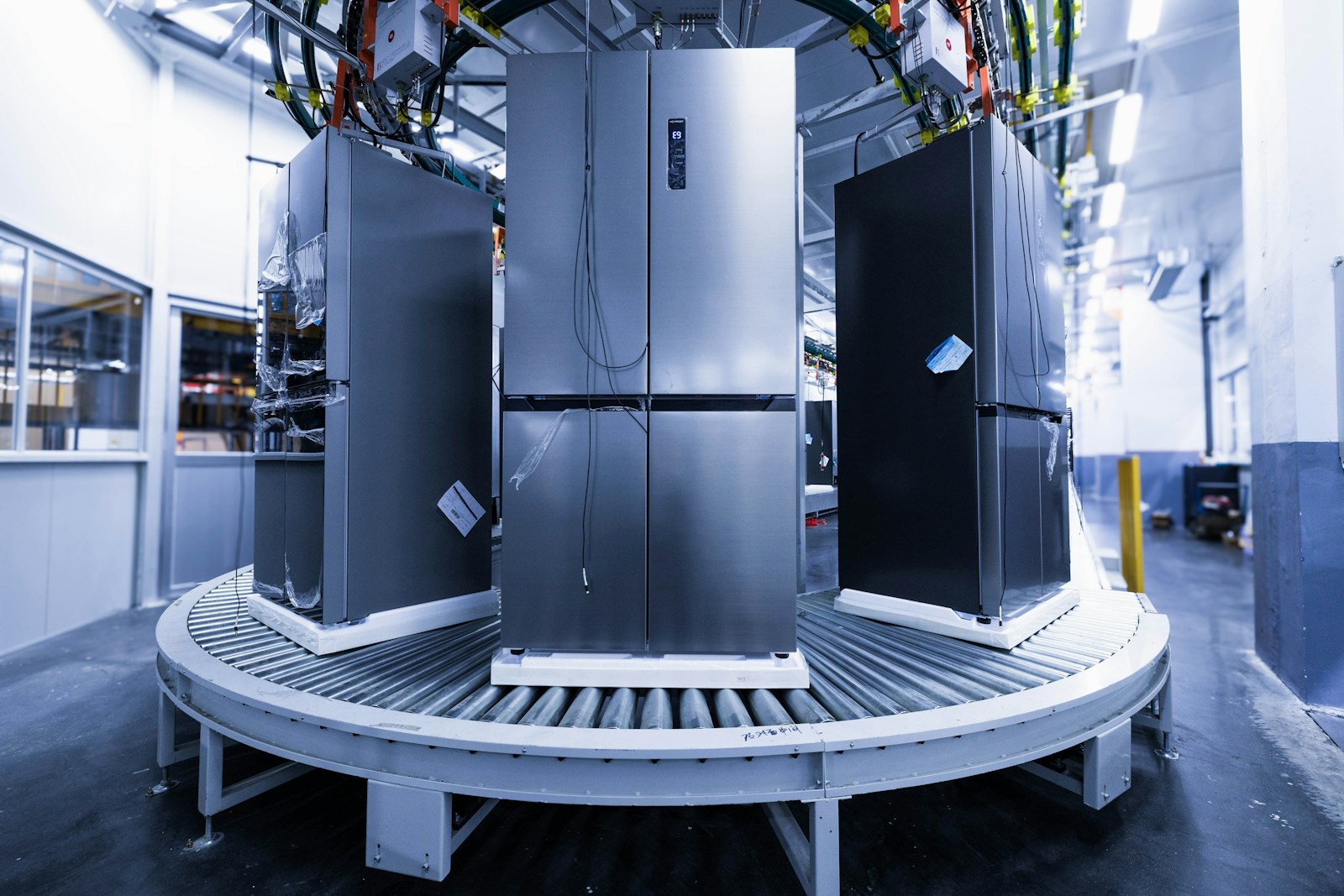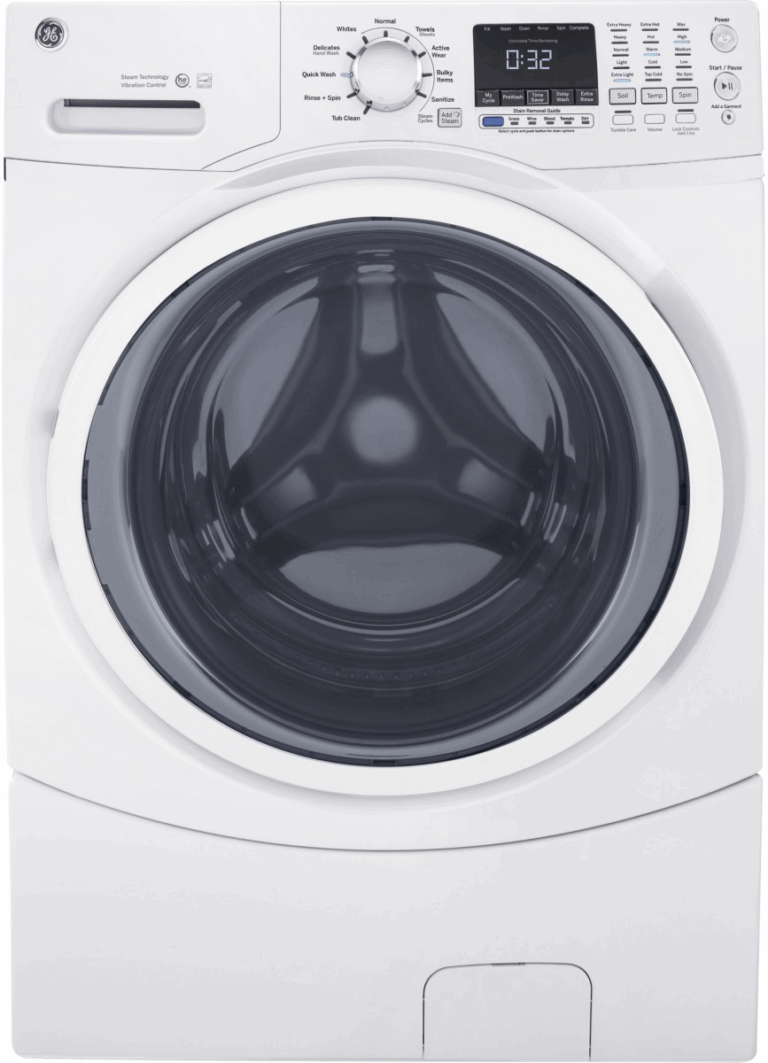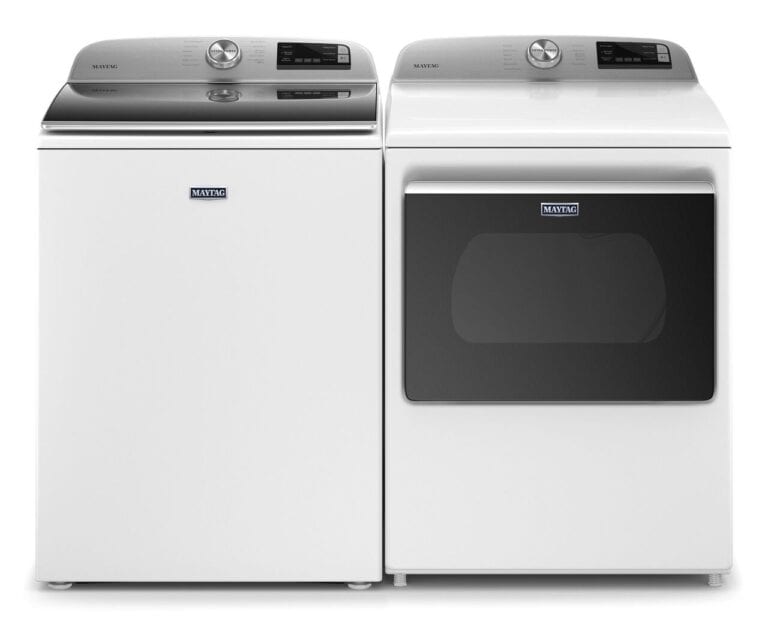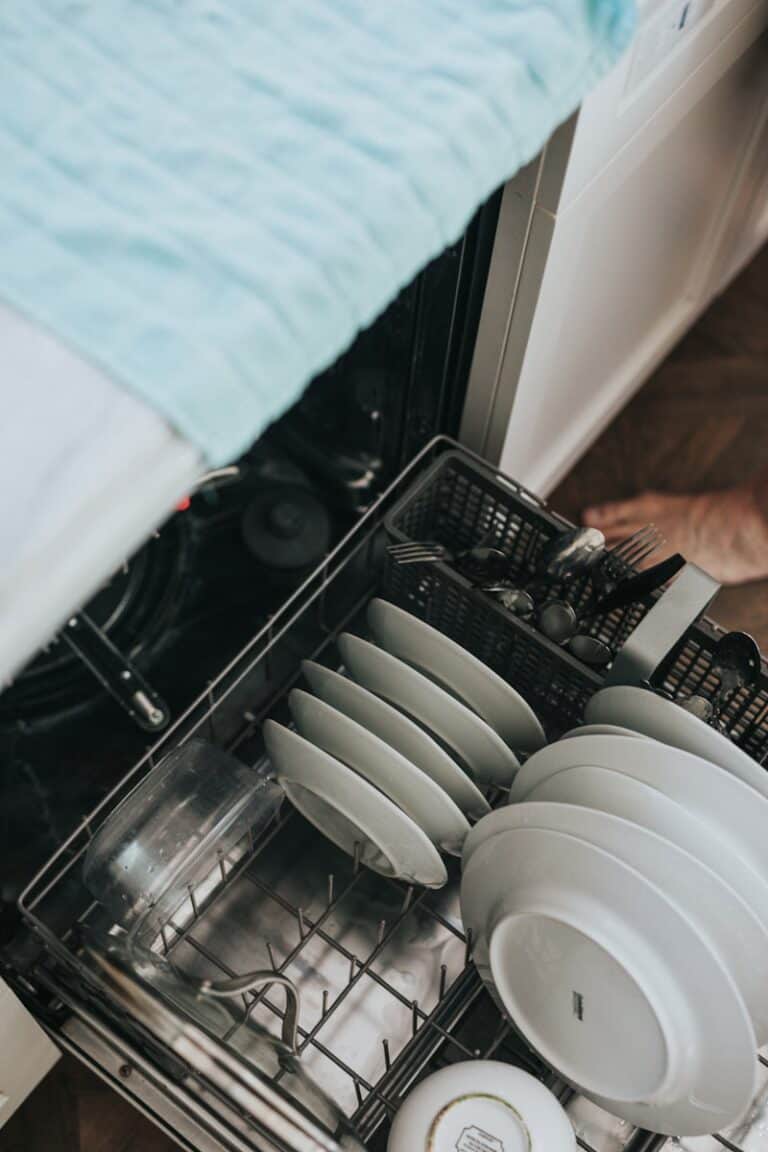
Refrigerator compressors play a crucial role in keeping food fresh and cold. When these vital components fail, homeowners face an important decision: repair or replace? The average cost to replace a refrigerator compressor ranges from $300 to $550, with labor costs pushing the total to $450-$1,250.
The wide price range reflects variations in compressor types, refrigerator models, and local labor rates. Smaller, basic compressors for standard fridges typically cost less than large, high-efficiency models for premium appliances. Labor costs also vary significantly based on location and technician expertise.
For many homeowners, the decision to replace a compressor hinges on the age and overall condition of the refrigerator. If the fridge is relatively new or high-end, compressor replacement often makes financial sense. However, for older or budget models, investing in a new refrigerator might prove more cost-effective in the long run.
How Much Does a Refrigerator Compressor Cost?
A refrigerator compressor is the heart of your fridge — it circulates refrigerant and keeps your food cold. When it fails, your fridge can’t maintain temperature, and you’ll likely need a repair or replacement.
Below is a breakdown of costs, factors, and tips to help you make an informed decision.
💰 Average Refrigerator Compressor Replacement Cost
- Average total cost (parts + labor): $700 – $1,250
- Parts only: $200 – $500
- Labor: $300 – $750
- Emergency or weekend service: Add 20–50% more
(Sources: HomeGuide, True Appliance Repair, Angi)
⚙️ Factors That Affect the Cost
- Brand and Model
- High-end brands (Sub-Zero, Viking, Bosch) have more expensive compressors and labor costs.
- Standard brands (Whirlpool, GE, LG, Samsung) are typically less costly.
- Compressor Type
- Standard compressors: $200–$400
- Inverter or variable-speed compressors: $400–$800 (more efficient but pricier)
- Fridge Size and Configuration
- Larger side-by-side or French-door models require more powerful compressors.
- Compact or top-freezer fridges are cheaper to repair.
- Labor and Location
- Urban areas with higher labor rates can increase total cost by 20–30%.
- Diagnostic fees ($75–$150) may apply before repair.
- Warranty Coverage
- Many refrigerators have a 5–10 year sealed-system warranty that may cover the compressor cost (but not always labor).
🧰 Repair vs. Replacement: Which Makes Sense?
| Age of Fridge | Recommended Action | Reason |
|---|---|---|
| Less than 5 years | Repair | Still under warranty or worth fixing |
| 6–10 years | Depends | Compare repair cost to replacement value |
| Over 10 years | Replace | Efficiency and lifespan make replacement smarter |
If the repair cost exceeds 50% of a new fridge’s price, replacement is usually the better choice.
⚡ Tips to Save Money
- Check warranty first: Compressor parts might be covered even after general warranty expires.
- Get multiple quotes: Prices vary between local technicians.
- Avoid emergency calls: Schedule during regular hours to avoid surcharges.
- Clean condenser coils regularly: Prevents compressor strain and extends lifespan.
🧾 Quick Summary
| Item | Estimated Cost (2025) |
|---|---|
| Compressor part only | $200 – $500 |
| Labor | $300 – $750 |
| Total replacement | $700 – $1,250 |
| Emergency/weekend repair | +20–50% |
| Diagnostic fee | $75 – $150 |
🧠 Final Thoughts
Replacing a refrigerator compressor in 2025 typically costs $700 to $1,250, depending on brand, model, and labor rates. Always verify warranty coverage before paying out of pocket — and if your fridge is older, a full replacement might be the smarter long-term investment.
Key Takeaways
- Refrigerator compressor replacement costs average $300-$550 for parts, with total costs including labor ranging from $450-$1,250.
- The age and model of the refrigerator greatly influence the decision to replace the compressor or buy a new appliance.
- DIY compressor replacement can save money but requires advanced skills and may void warranties.
Understanding Refrigerator Compressors
Refrigerator compressors are vital components that circulate refrigerant through the cooling system. They play a crucial role in maintaining the desired temperature inside the refrigerator.
Types of Refrigerator Compressors
Reciprocating compressors are common in household refrigerators. They use pistons to compress refrigerant gas. These compressors are reliable and cost-effective for smaller appliances.
Scroll compressors use two spiral-shaped scrolls to compress refrigerant. One scroll remains stationary while the other orbits around it. This design offers smoother operation and higher efficiency compared to reciprocating models.
Rotary compressors use a rotating mechanism to compress refrigerant. They are compact and operate quietly, making them suitable for smaller refrigerators and freezers.
Lifespan of a Refrigerator Compressor
A well-maintained refrigerator compressor typically lasts 10 to 20 years. Regular cleaning and proper usage can extend its lifespan. Factors affecting compressor longevity include:
- Frequency of use
- Ambient temperature
- Power fluctuations
- Quality of the compressor
Proper maintenance, such as keeping the condenser coils clean and ensuring good airflow around the refrigerator, can help prevent premature compressor failure.
Signs of Compressor Failure
Several indicators suggest a failing refrigerator compressor:
- Unusual noises: Clicking, humming, or loud buzzing sounds
- Frequent cycling: The compressor turns on and off more often than usual
- Reduced cooling: The refrigerator struggles to maintain proper temperature
- Warm motor: The back of the refrigerator feels excessively hot
If these symptoms persist, professional inspection is recommended. Compressor replacement can be costly, often ranging from $300 to $600 for parts and labor. In some cases, purchasing a new refrigerator may be more economical than replacing the compressor.
Cost Factors for Compressor Replacement
Replacing a refrigerator compressor involves several key cost elements. These include the price of the compressor itself, labor expenses, and potential additional repair costs.
Compressor Price Variations
Refrigerator compressor prices can vary significantly based on the brand, model, and capacity of the refrigerator. Basic compressors for smaller units may cost around $100 to $200. High-end models for large or specialized refrigerators can run up to $500 or more.
Energy-efficient compressors often come with a higher price tag but can lead to long-term savings on electricity bills. Some popular brands may charge a premium for their parts.
Availability also affects pricing. Rare or discontinued models might require special ordering, increasing costs.
Labor Costs for Compressor Replacement
Professional technician fees make up a substantial portion of compressor replacement costs. Labor charges typically range from $75 to $200 per hour, depending on location and expertise.
Most compressor replacements take 2-4 hours to complete. This puts the average labor cost between $150 and $800.
Some repair companies charge a flat rate for compressor replacement instead of hourly fees. These rates often include diagnostic services and minor additional repairs.
Rural areas may have higher costs due to travel time and limited competition among repair services.
Additional Repair Costs
Compressor failure can damage other refrigerator components, leading to extra repair needs. Common additional repairs include:
- Replacing the start relay ($20-$50)
- Repairing or replacing the condenser fan ($100-$300)
- Fixing refrigerant leaks ($200-$400)
Diagnostic fees, typically $50-$150, may be charged separately or included in the overall repair cost.
Some technicians recommend replacing the filter drier ($20-$50) when installing a new compressor to prevent future issues.
Refrigerant recharge is usually necessary after compressor replacement, adding $100-$200 to the total cost.
Repair vs Replacement Decision
When faced with a faulty refrigerator compressor, homeowners must weigh the costs and benefits of repair versus replacement. This decision hinges on factors like repair expenses, appliance age, and overall condition.
Cost Analysis
Replacing a refrigerator compressor costs $450 on average, ranging from $300 to $400. The compressor itself runs $100 to $500, not including labor. Professional installation adds $500 to $850 to the total.
Repair costs for minor compressor issues range from $50 to $125 per hour. However, if the compressor needs replacement, the total cost often approaches $700 to $1,250.
A new refrigerator costs $1,000 to $3,000 on average. This price point becomes relevant when comparing repair expenses to replacement.
Assessing Refrigerator Condition
Age is a key factor in the repair-replace decision. For refrigerators over 10 years old, replacement often makes more financial sense than costly repairs.
Technicians typically need 2-4 hours to replace a compressor. This labor time impacts overall repair costs.
Warranty coverage influences the decision. DIY repairs can void existing warranties, making professional service advisable for newer units.
Energy efficiency improvements in newer models may offset replacement costs through lower utility bills. This factor favors replacement for older, less efficient refrigerators.
Finding a Qualified Technician
Locating a skilled refrigerator repair technician requires research and due diligence. The process involves gathering estimates and verifying credentials to ensure quality service for your compressor repair needs.
Estimate Gathering Process
Start by contacting multiple refrigerator repair services in your area. Ask for detailed quotes that break down parts and labor costs. Many technicians offer free estimates. Request these in writing for easy comparison.
Some companies provide online quote forms. Others may need to inspect the refrigerator in person. Prepare a list of symptoms and the fridge’s make and model before reaching out.
Compare at least three estimates. Look beyond the price. Consider factors like warranty coverage, parts quality, and service guarantees.
Verifying Credentials and Experience
Check each technician’s licensing and insurance status. Most states require HVAC certification for refrigerator repairs. Ask for proof of these credentials.
Look for technicians with specific experience in refrigerator compressor repairs. Inquire about their training and years in the field. Experienced professionals often charge more but may provide better service.
Read online reviews and ask for references. Contact past clients to gauge satisfaction levels. Professional associations like ACCA can also provide listings of qualified technicians.
Verify the technician’s familiarity with your refrigerator brand. Some manufacturers offer certification programs for repair professionals.
Frequently Asked Questions
Refrigerator compressor replacement involves several key considerations. Cost, signs of failure, and decision-making factors play crucial roles in this process.
What is the average cost to replace a refrigerator compressor?
The average cost to replace a refrigerator compressor ranges from $300 to $650. This price includes both parts and labor. The compressor itself typically costs between $100 and $500. Labor charges can add $200 to $400 to the total bill.
How can you determine if your refrigerator compressor needs to be replaced?
A professional diagnosis is the most reliable way to determine if a compressor needs replacement. Unusual noises, temperature fluctuations, or a completely non-functioning refrigerator can indicate compressor issues. A technician can perform tests to confirm the compressor’s condition.
What are the signs of a failing refrigerator compressor?
Common signs of a failing compressor include:
- Loud or unusual noises
- Frequent cycling on and off
- Warm food in the refrigerator
- Increased energy bills
- Compressor not turning on at all
Approximately how long can one expect a refrigerator compressor to last?
A refrigerator compressor typically lasts 10 to 20 years. This lifespan can vary based on factors such as usage, maintenance, and the refrigerator’s overall quality. Regular cleaning and proper voltage supply can help extend a compressor’s life.
Should one consider repairing a refrigerator or replacing it when the compressor fails?
The decision depends on several factors:
- Age of the refrigerator
- Cost of repair versus replacement
- Energy efficiency of the current model
For older refrigerators, replacement often proves more cost-effective. Newer models with other functioning components may benefit from compressor repair.
What are the factors affecting the overall cost of refrigerator compressor replacement?
Several factors influence the cost of compressor replacement:
- Brand and model of the refrigerator
- Type and size of the compressor
- Labor rates in the area
- Warranty coverage
- Additional parts needed for installation
High-end refrigerator models often have more expensive compressors. Labor costs can vary significantly based on location and technician expertise.




